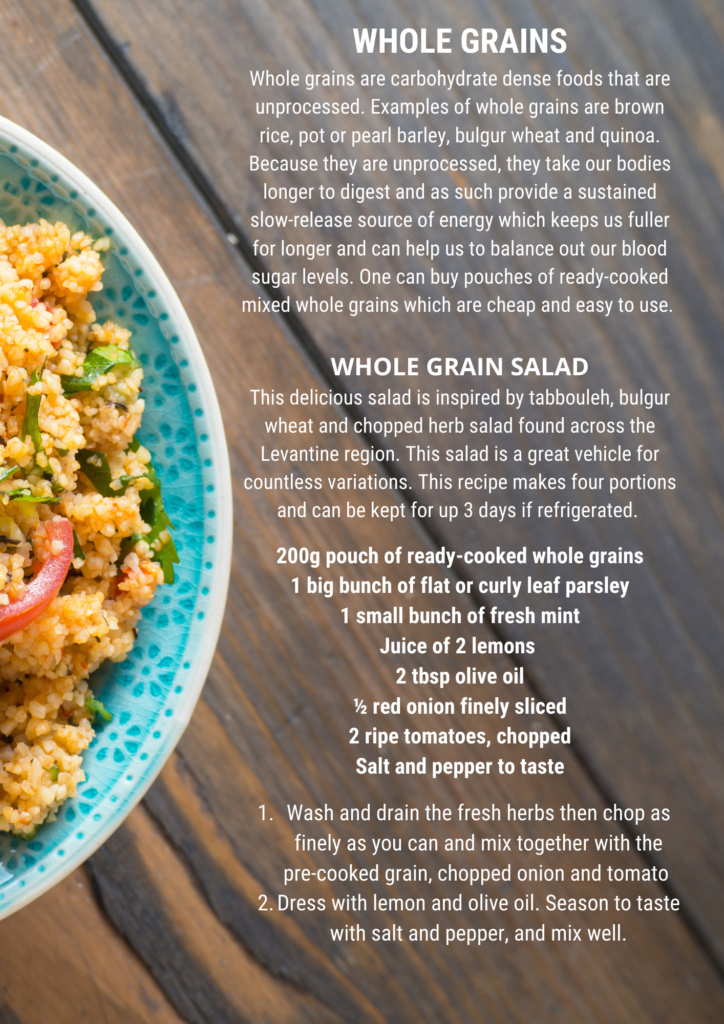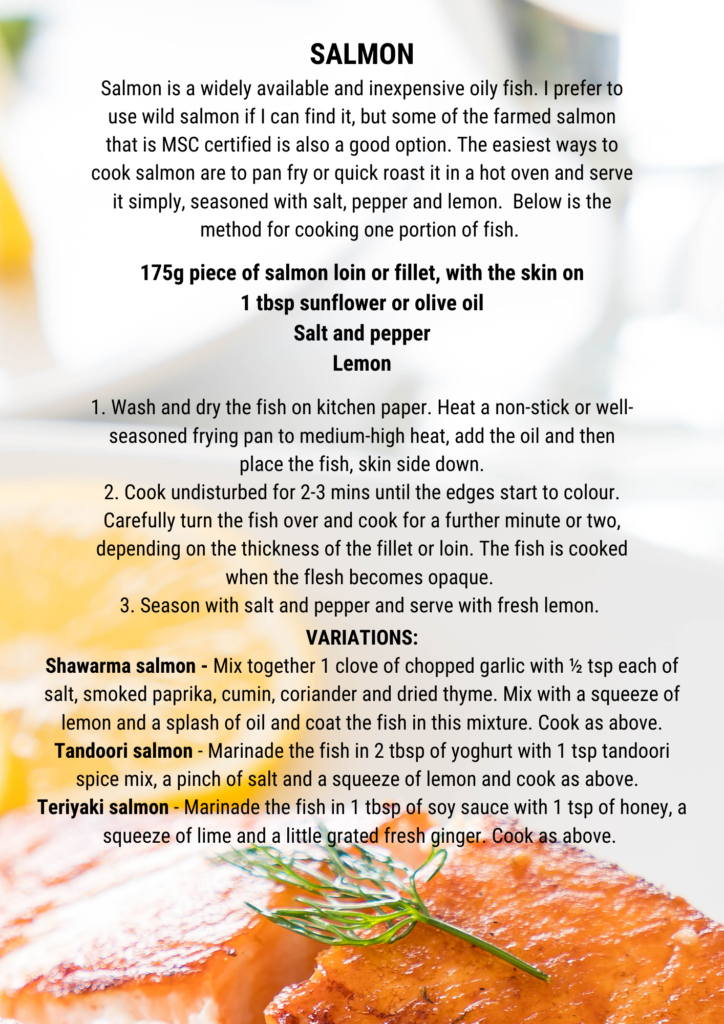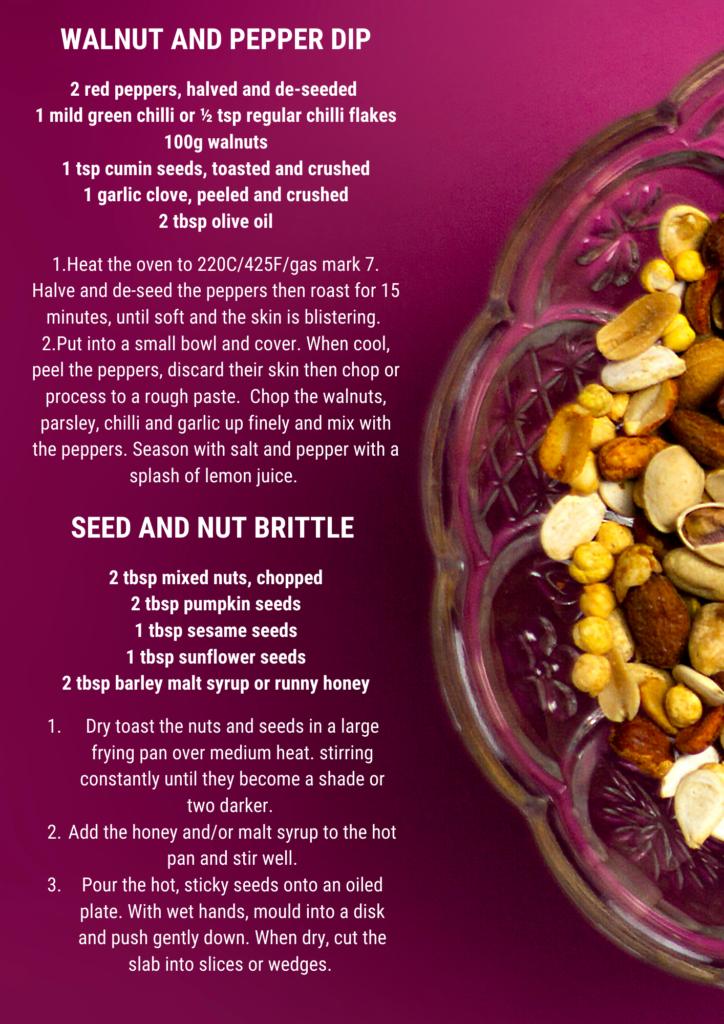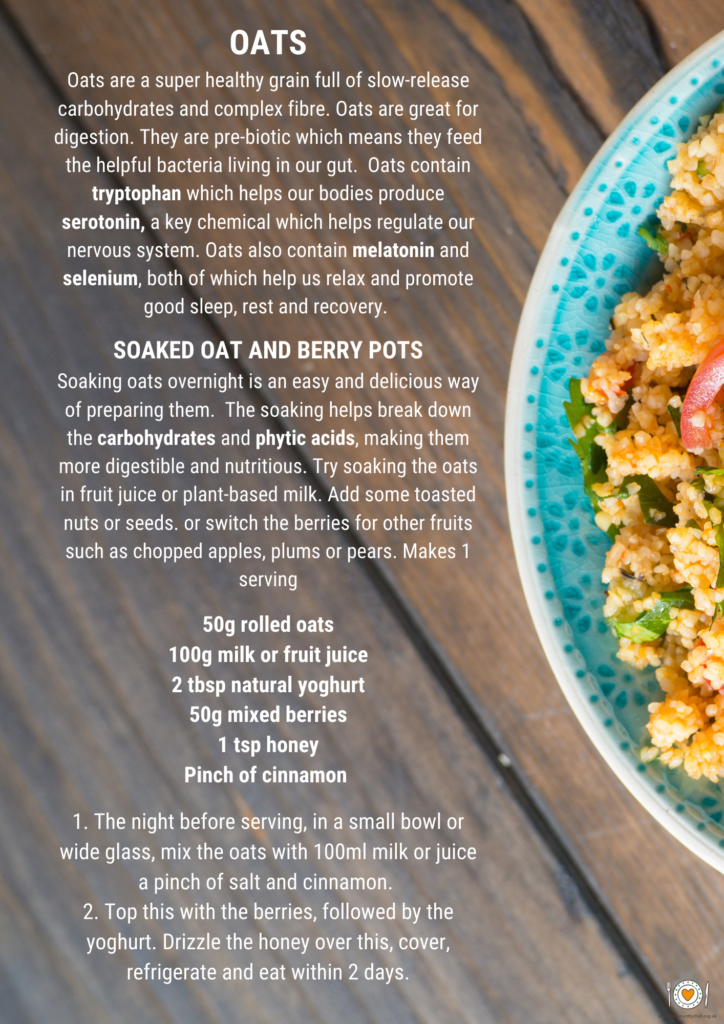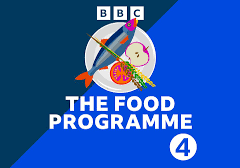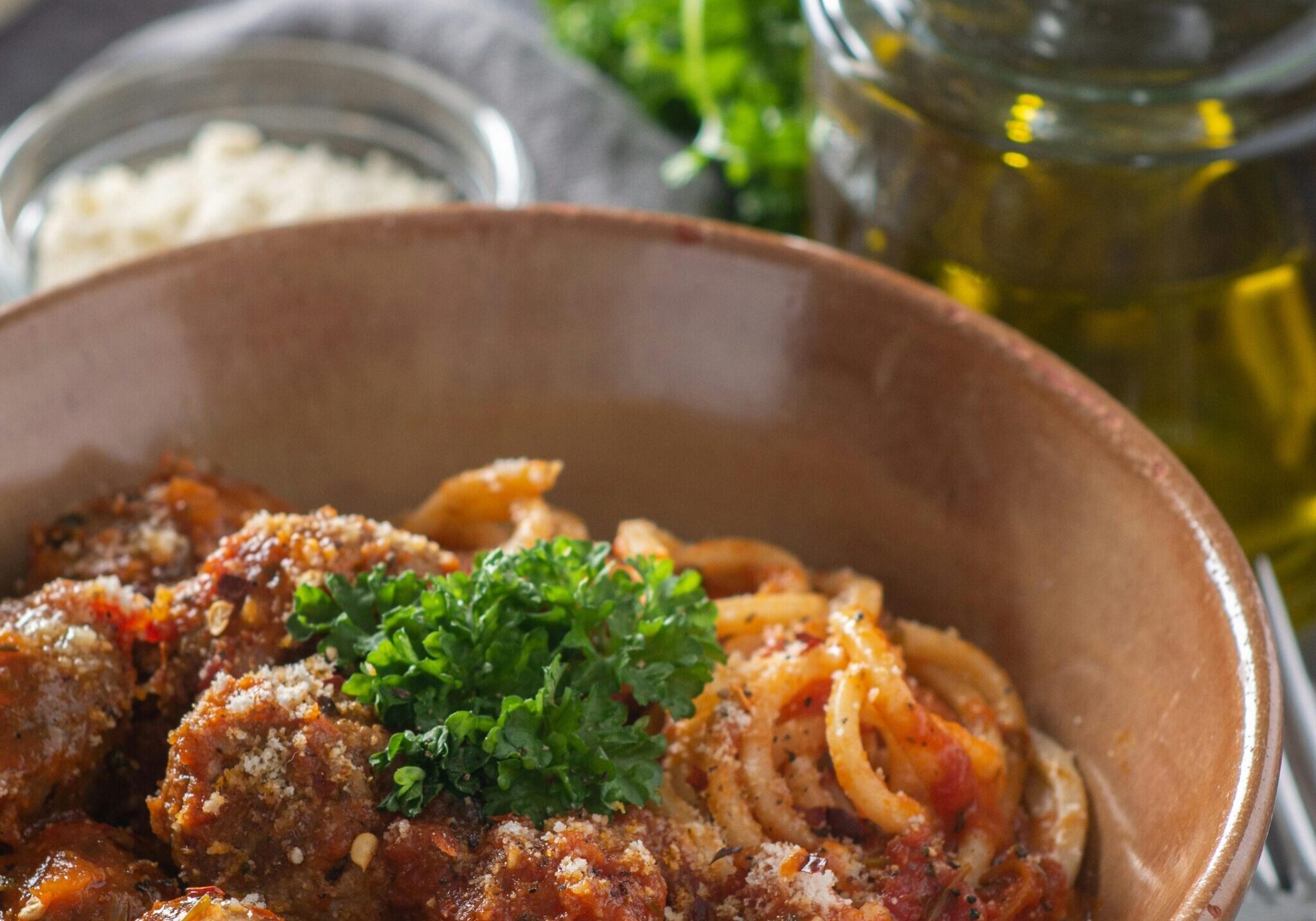We have a great new project on the go with working with Kent and Medway NHS mental health rehabilitation services. The service does a great job of housing and helping people with really severe mental health challenges. They have made good food a priority and we’re supporting them to achieve this. We are currently doing a series of cookery demonstrations for patients, residents and staff in the various units across the area, preparing vital and delicious feel good foods while promoting the therapeutic and confidence-building benefits of cooking communally.
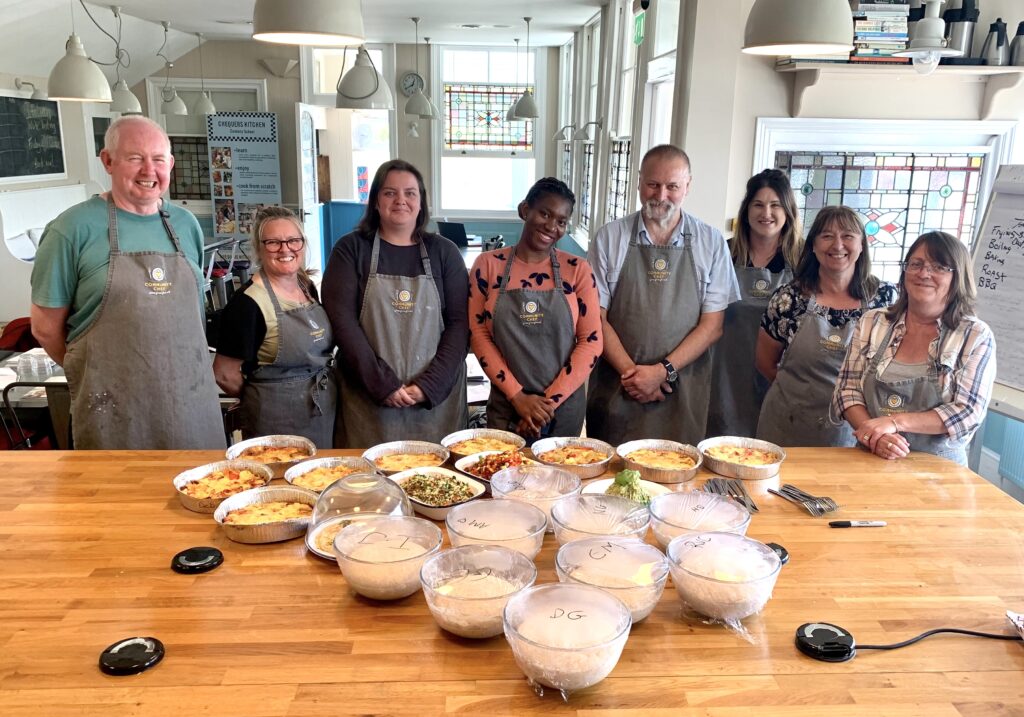
The next part of the project involves training staff from 12 units to run in house cookery activities. This is a bespoke cookery leader training which includes modules on food and mood, mindfulness in the kitchen and therapeutic bread making. We are aiming to help every residential and community mental health facility in Kent to set up their own in house cookery and bread clubs as well as resident led social dining activities.
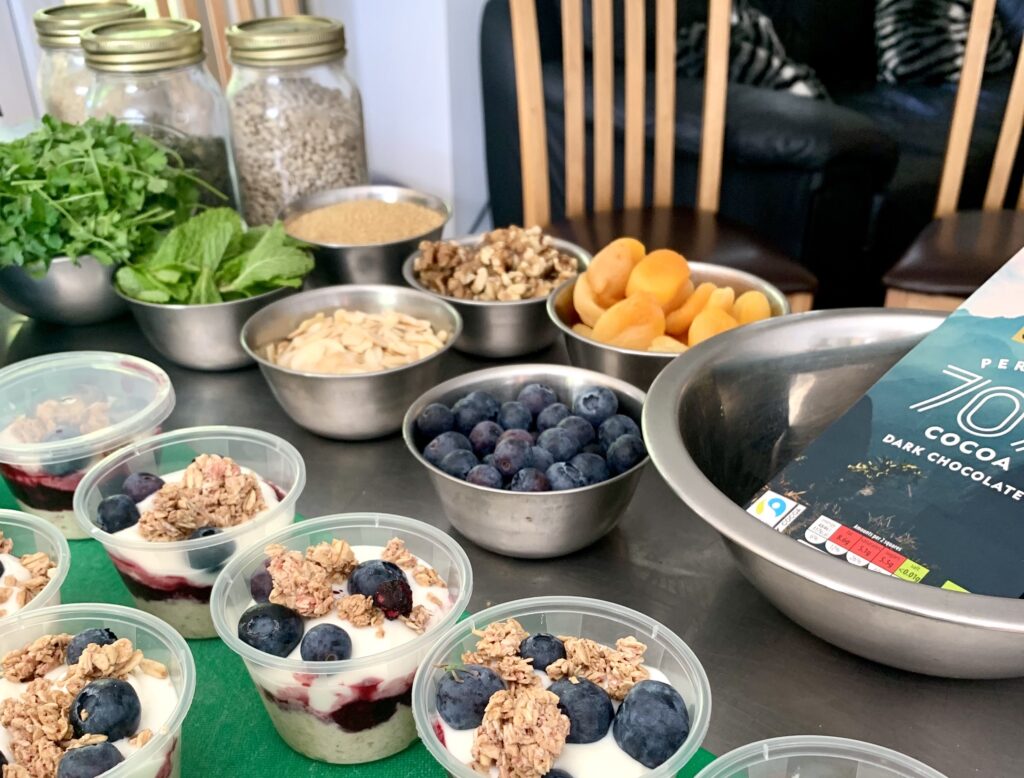
The logic behind this work is very straight forward. Preparing and sharing food communally is a great way of making friends and and getting to know people. It can help us to feel safe and part of a community. Learning to cook can help people suffering with mental health issues to be self confidence, which in turn helps their recovery and independence
What we eat affects us nutritionally, physically, financially and mentally. Whether we eat for survival, pleasure, comfort or distraction, food is a fundamental part of our lives. Cooking and eating fresh, vital food is good for us on so many levels. Good nutrition helps our energy levels and supports mental & physical health. Cooking itself is a nourishing, stimulating, creative and therapeutic process. Cooking fresh food can save you money.
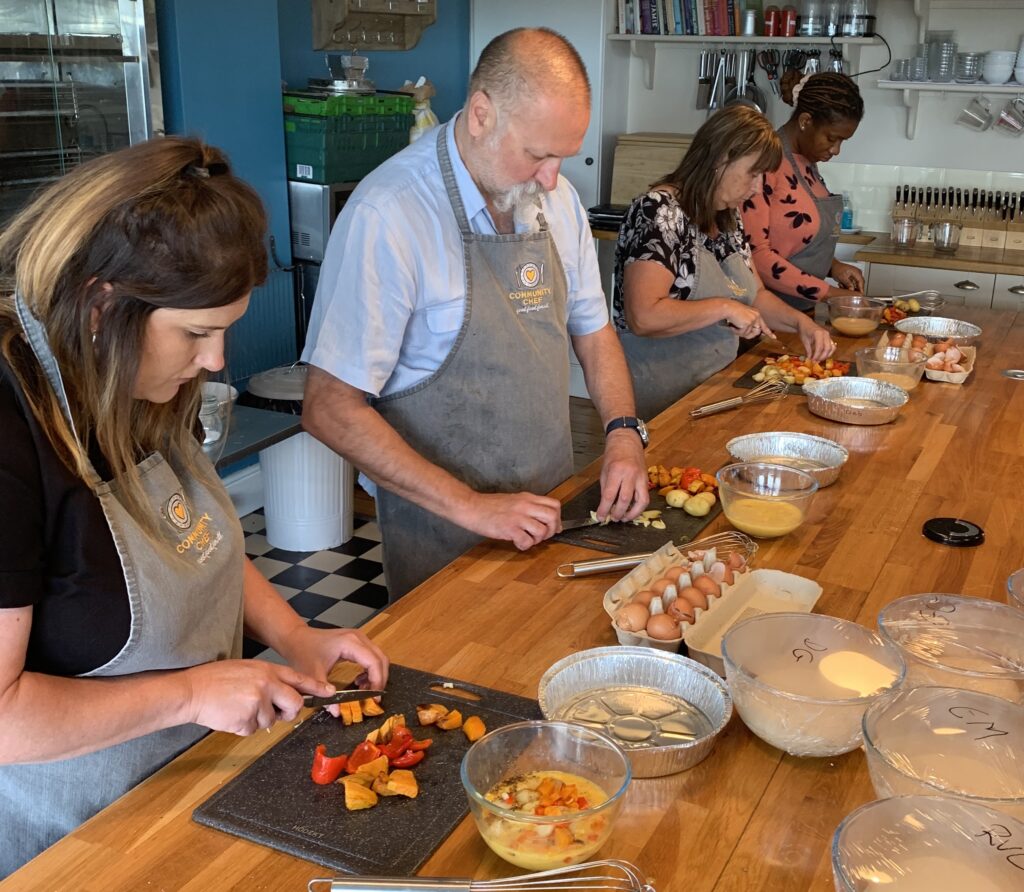
The key message we are focusing on are is that small changes to your diet can make a big difference to how you feel.:
Eat regularly and not before you go to sleep – keep your blood sugar levels balanced and allow your body to rest when you sleep.
Drink lots of water – dehydration can affect your mood, energy level and ability to concentrate.
Eat good fats – our brain needs healthy fats to keep working well.
Eat lots of whole grains, fruits & vegetables – complex carbohydrates, vitamin & mineral-rich foods are essential foods.
Eat enough protein – essential for the repair and growth of muscles. amino acids help your brain to regulate your mood.
Keep your guts healthy – eat lots of fibre, fruit, vegetables, beans and probiotics foods such as sauerkraut and yoghurt.
Cut the caffeine – excessive caffeine can cause sleep problems and increase anxiety and irritability.
Here are some of the recipes we’ve been preparing:
